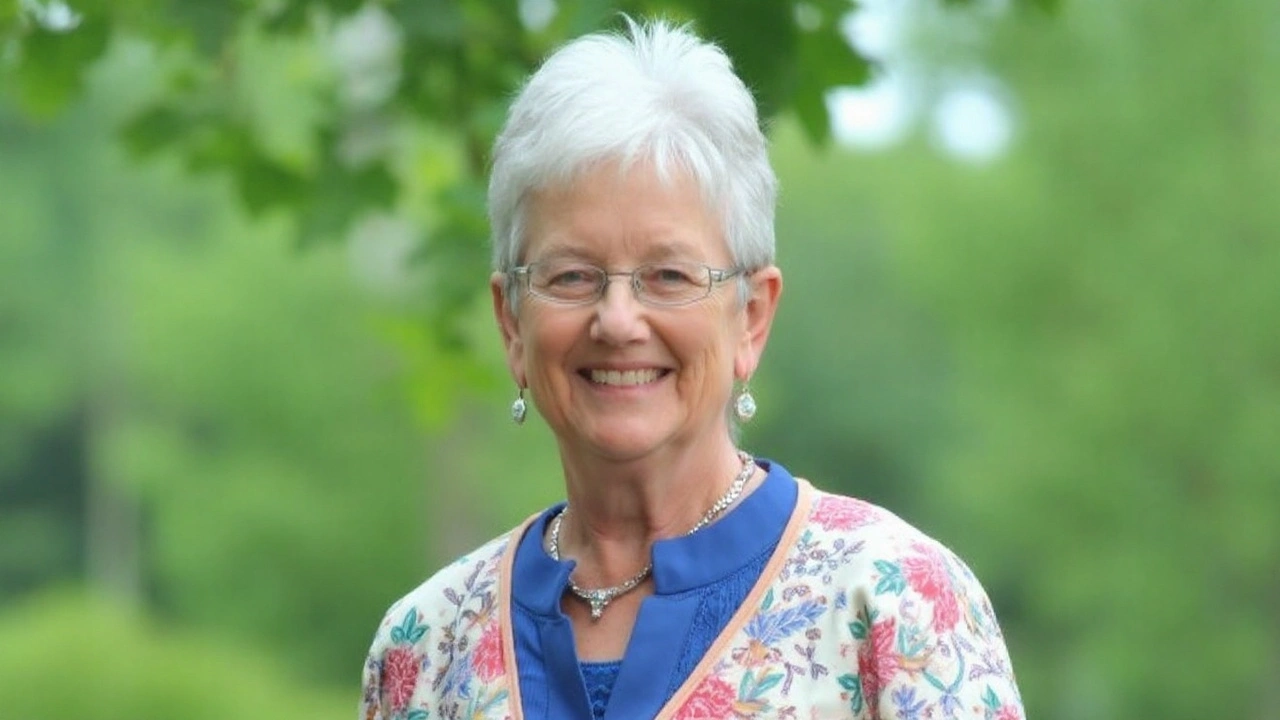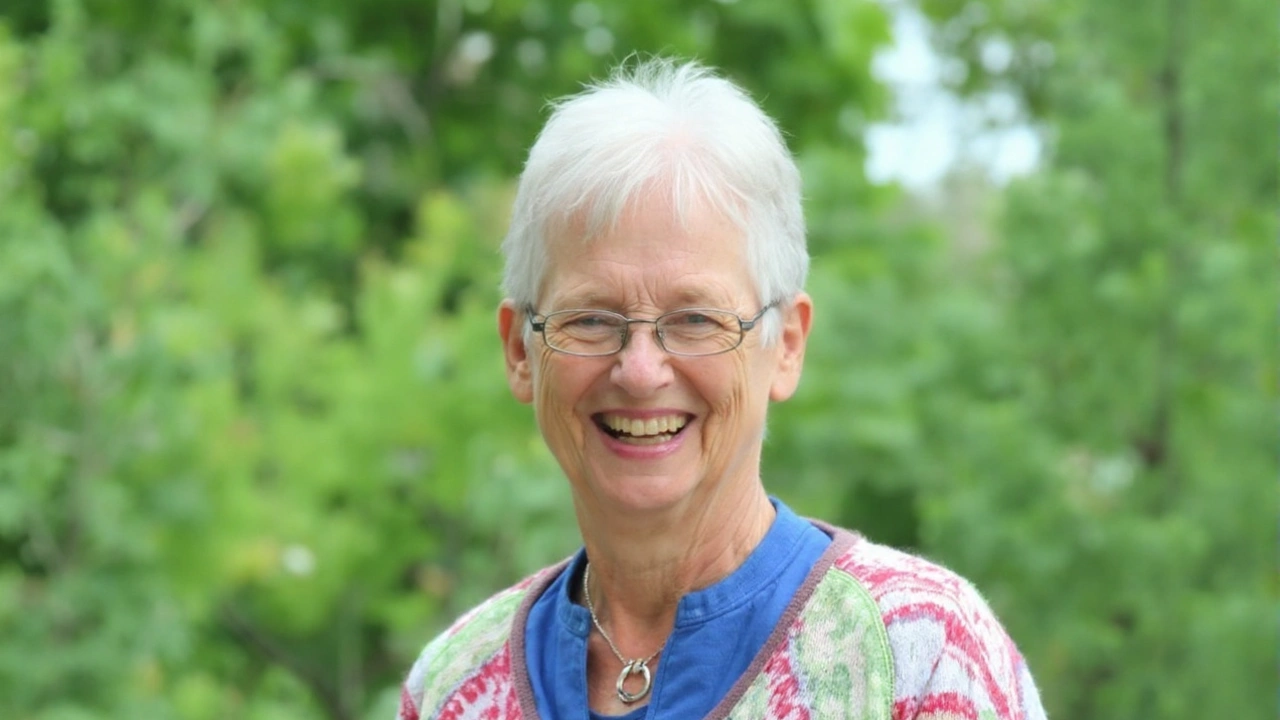Jacqueline Wilson steps into adult fiction with Think Again
Jacqueline Wilson has spent decades writing for children and teens. Now she’s turned the page. In a public conversation at dlr LexIcon in Dún Laoghaire on September 26, 2024, with journalist Aoife Barry, Wilson discussed her first adult novel, Think Again, and the lives of middle-aged women whose marriages fall apart. An Irish Times report on her comments isn’t accessible, but the event itself, recorded for audio, offered a clear sense of where she’s going and why.
Think Again is being presented as a return to adult storytelling for a writer who defined parts of many readers’ childhoods. The book zeroes in on life after a long relationship ends—how you rebuild when the roles you lived by suddenly don’t fit. It’s not about a dramatic scandal or a neat moral. It’s about the awkward, practical, and sometimes funny business of starting over at a point when many people assumed the hard choices were behind them.
Wilson’s focus on middle-aged women is deliberate. The audience she grew up with is older now; a lot of those readers are juggling work, ageing parents, adult children, debt, and health concerns. A marriage breakup in the middle of all that can be a full-life reset. The novel leans into those realities: the scramble for housing, the negotiation over money and assets, the social whiplash of shifting from “couple” to “single,” and the quiet daily effort of rebuilding confidence.
At the dlr LexIcon event, the conversation touched on everyday details that don’t always make it into fiction—like how you split a home library, what happens to the dog, or how friendships shuffle when a couple breaks up. Wilson’s strength has always been character and voice, and here she applies that to adulthood: the small decisions that add up, the polite lies we tell, and the moments when someone finally says what they really think.
The pivot also matters for readers who met Wilson through her children’s books. Those readers are now in their 20s, 30s, and 40s. Hearing her tackle adult themes creates a kind of continuity: the same plainspoken storytelling, now aimed at the problems they face. For anyone who discovered reading through her earlier work, Think Again is a signal that the stories—and the empathy—can grow up alongside them.

Why midlife divorce is a cultural story—and a practical one
There’s a broader backdrop here. Social researchers often talk about “grey divorce”: the rise in separations among people in longer marriages, especially in their 40s, 50s, and beyond. In the United States, for example, Pew Research Center has reported that divorce rates for adults 50 and older roughly doubled from the 1990s to the mid-2010s. The UK and Ireland have seen their own shifts as divorce laws changed, social stigma eased, and more women have financial independence. Even where overall divorce numbers fluctuate year to year, the share involving older couples has been growing for a while.
The fallout is practical before it’s poetic. Two homes where there used to be one means higher housing costs—hard in any city with tight rental markets. There are pensions and savings to split, and that’s where many women run into a gap. Industry studies in the UK, for instance, have repeatedly flagged a significant gender pension gap—often estimated around a third less for women on average—which can leave women worse off in retirement after a split. Add in care responsibilities for parents or grandchildren, and the financial picture can get complicated fast.
There’s also the emotional and social rebuild. Friends may feel torn between partners. Adult children can still struggle when their parents separate, even if they no longer live at home. People in their 40s and 50s may enter the dating world for the first time in decades, navigating online profiles, new expectations, and a different set of rules. Fiction that takes these details seriously doesn’t just “reflect reality”; it gives readers language and perspective when they’re trying to make sense of their own lives.
Publishing has been slowly opening more space for stories like this. For years, the industry leaned on coming-of-age plots or romance arcs that ended at the altar. Lately, there’s more attention on what happens next: careers that stall or reset, bodies that change, relationships that evolve, and communities that become chosen rather than inherited. A novel like Think Again lands in the middle of that shift, with a familiar writer exploring unfamiliar territory.
Wilson’s track record matters here. She’s known for centering characters who aren’t typically put on pedestals—kids in care, families under strain, girls who don’t fit the mold. Translated into adult fiction, that same instinct gives oxygen to people who often feel sidelined once a marriage ends. The point isn’t to deliver a tidy lesson. It’s to show the mess, the humor, the negotiations, and the small wins that make a new life possible.
The dlr LexIcon talk also underscored the role libraries and public events play in this conversation. They’re where readers compare notes and say the quiet parts out loud: the shock of an empty house, the fear of legal costs, the relief of a weekend alone, the thrill—and terror—of a second first date. When a well-known author turns to these themes, it normalizes the discussion. People stop whispering. They start planning.
What comes next? Wilson hasn’t set out a grand manifesto. But the door is open. Think Again suggests she’s willing to follow characters into the thick of adult life and stay there. If readers respond, expect more events like the Dún Laoghaire conversation—and a wave of book-club debates about how you split the crockery, who keeps the playlists, and what it takes to build something sturdy after a big break.
